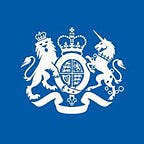Teaching Girls to Code
This National Coding Week, hear from a woman teaching coding to the next generation of women. Karishma is the only IT teacher at an all-girls school in Kent. Read her story:
Why do you think few girls go into computer science?
Lots of girls are scared of the programming world because it’s male-dominated, or because they think it’s just sitting in front of a screen and writing lines and lines of code.
So many of my students say “Ah miss, it’s just programming and I’m not going to be doing that in the future.” But they forget the fact that programming, or computing in general, is not just one thing.
I keep saying to them, “These skills will help you to troubleshoot lots of different problems — for example if your tech isn’t working in a meeting and you need to figure out why.”
What made you want to go into computer science?
I’ve had this passion since school. I’m from Mauritius and I was one of the first students to study computing at my school. I came to the UK to study computer science at university, and then a PGCE.
Why do you think it’s important to raise awareness of girls in coding?
Everywhere you go, it’s men. You research programming and it’s a male name that will come up. It’s undeniably a male-dominated field. Girls can be really intimidated. I’ve been doing courses at the National Centre for Computing Education and I’ve been trying to engage girls — for example trips or clubs, or getting speakers in.
What do you think needs to change?
More women role models!
I went to a talk where it was a man giving a speech about getting more women into coding.
We need to see it to be it.
What do you like about coding?
I enjoy problem solving. When I teach my girls, I always highlight the core process of problem solving.
I give my students quite a lot of real life examples so they can see how they’ll be applied. For example, AI human behaviour.
Do you feel proud to be teaching girls computer science?
I love it when they achieve things and I hear “oh miss, I’ve got it, I’ve fixed the error.”
I feel proud when they achieve things, or when they go home and try new things on their own, for example writing a new game or doing an online course.
